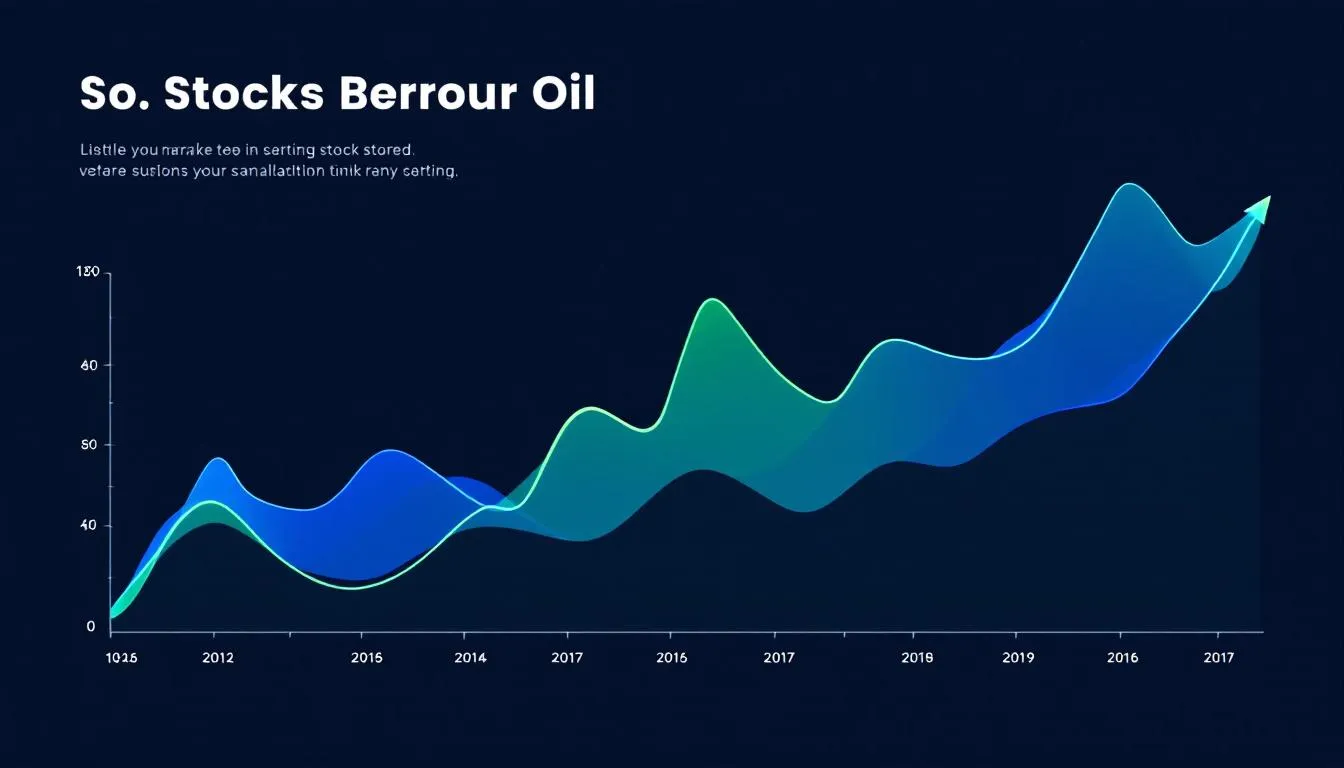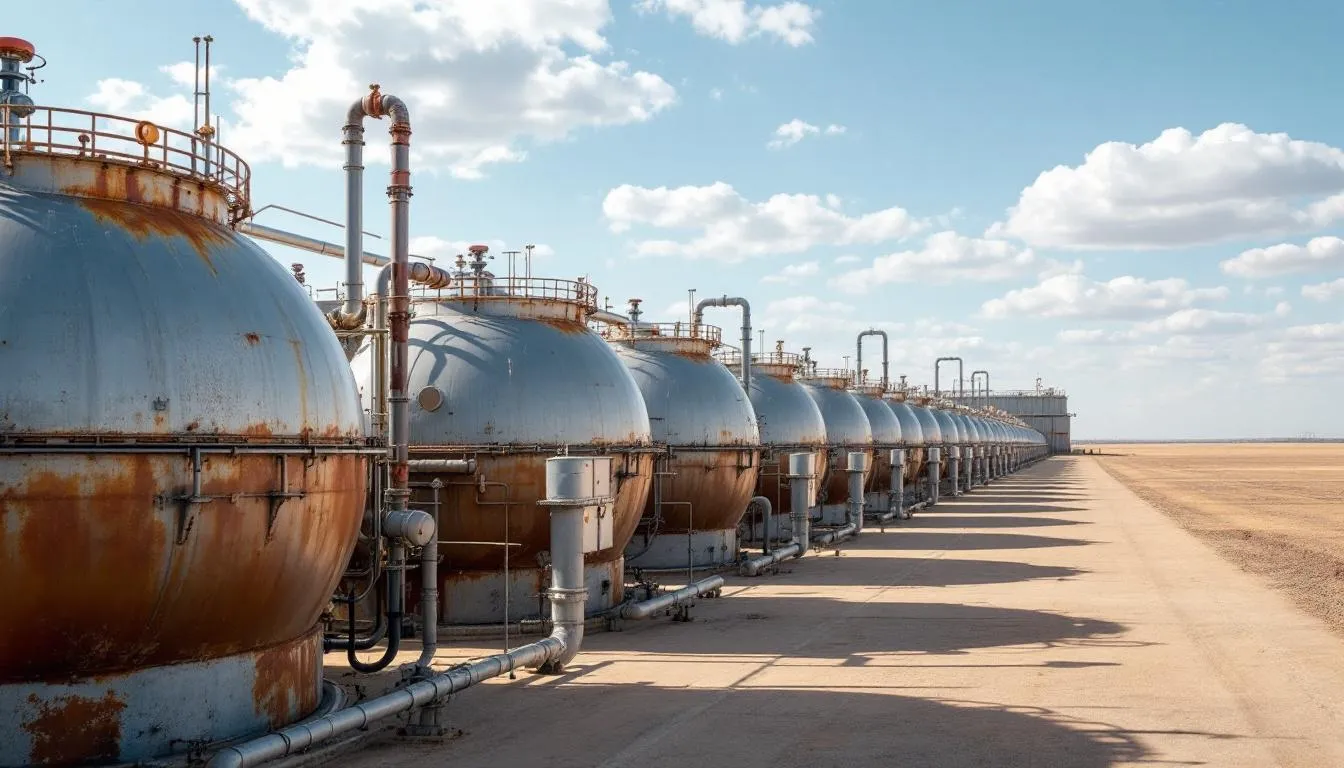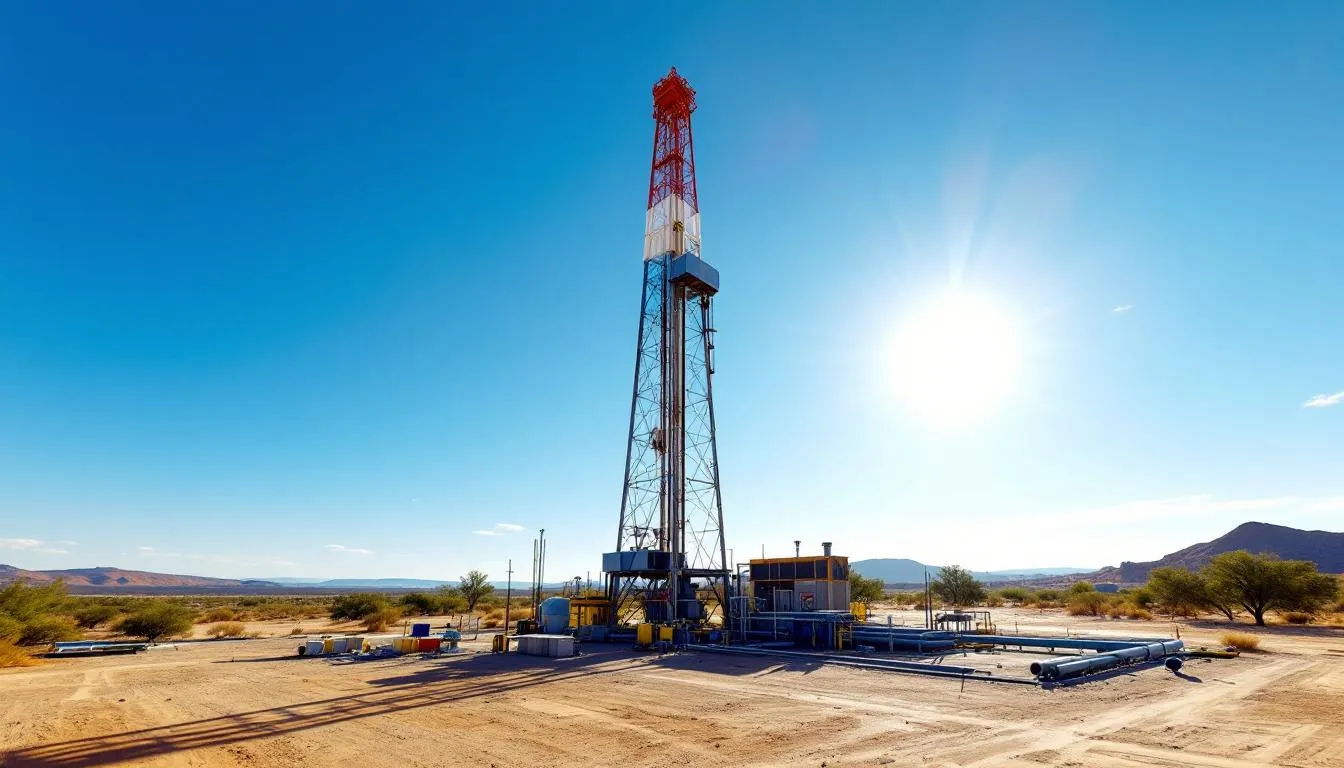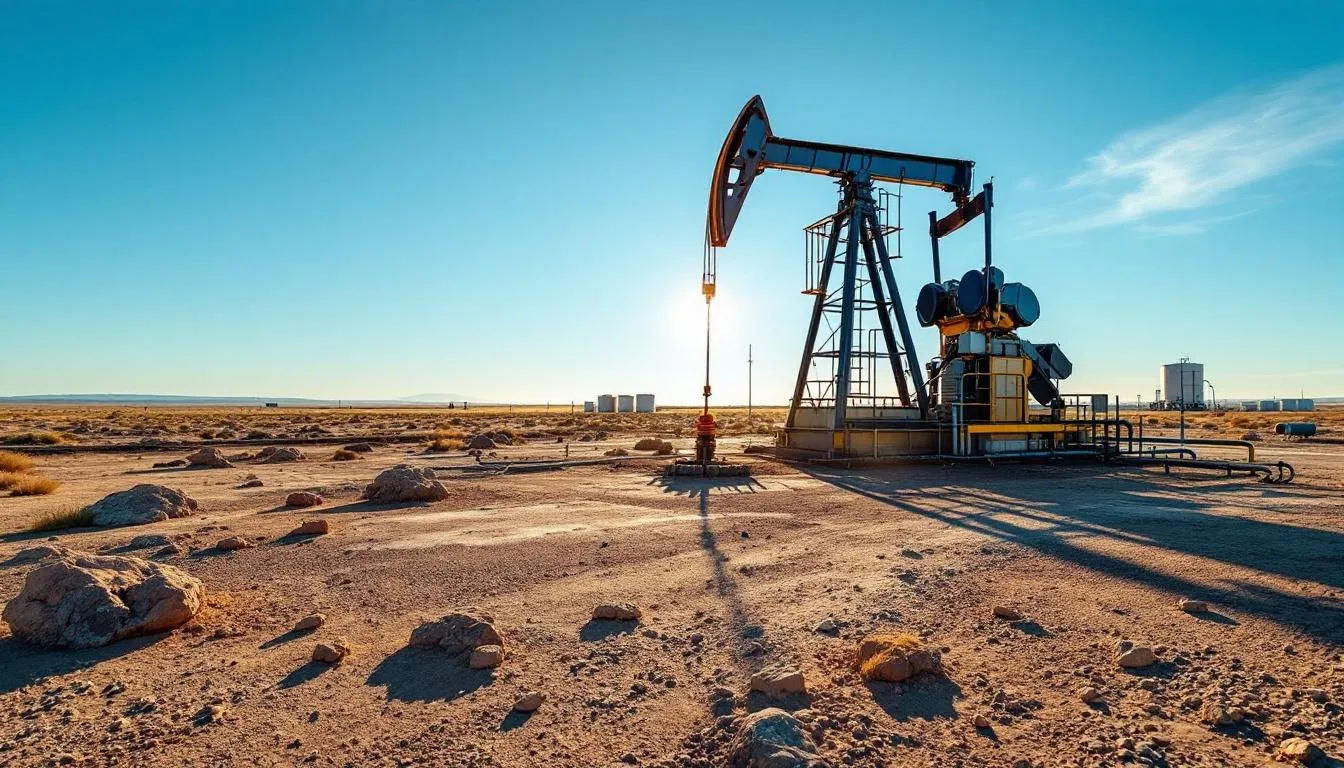To invest in oil, you can learn how to invest into oil by buying oil stocks, ETFs, mutual funds, futures, options, or even mineral rights. Call Domestic Drilling and Operating Today to start investing in Oil and Gas! Oil is an economically crucial resource providing the bulk of energy for transportation and raw materials for manufacturing. What makes oil an attractive investment is its volatility, potential for profit, and its role as a key asset in many investment portfolios. Heating oil, a petroleum product derived from crude oil, is widely used for heating homes and powering boilers, highlighting oil’s importance in everyday life and energy supply. It is also the world’s most heavily traded commodity. This guide will help you understand each of these options and the risks involved.
Introduction to Investing in Oil
Investing in oil offers a powerful way to diversify your portfolio and gain exposure to the dynamic energy sector. As global demand for crude oil continues to shape the world economy, many investors look to oil investments as a means of capitalizing on long-term growth and market trends. There are several ways to invest in oil, each with its own risk profile and potential rewards.
You can invest in oil directly by trading crude oil futures contracts, which allow you to speculate on the future price of oil. Alternatively, you can choose indirect investment options, such as purchasing shares of oil companies, oil stocks, or investing in exchange traded funds (ETFs) and mutual funds that focus on the oil industry. Oil ETFs and mutual funds provide easy access to a broad range of oil-related assets, making it simpler for investors to gain exposure to the sector without the complexities of futures trading.
Understanding the different types of oil investments—whether it’s through oil futures, oil stocks, or oil ETFs—is essential for making informed decisions. Each approach comes with its own set of risks and benefits, so it’s important to align your investment strategy with your financial goals and risk tolerance. By exploring both direct and indirect investment options, you can find the best way to invest in oil and take advantage of opportunities in this vital global market.
Key Takeaways
- Investing in oil stocks provides opportunities for hedging against inflation and portfolio diversification, but requires careful assessment of investment goals and risk tolerance.
- Diversification through oil ETFs and mutual funds offers a safer alternative to individual oil stocks, enabling broader exposure to the energy sector while mitigating risks.
- Oil prices are set globally in various spot and futures markets by participants, including producers, consumers, and investors. Understanding these dynamics, including geopolitical tensions, production costs, and environmental risks, is crucial for making informed investment decisions and managing volatility.
Domestic is the best operating oil and gas exploration company located in the Dallas, TX
Interested In Working With Domestic operating?
Our News and Blog articles we write are here to keep you up to date in the Oil and Gas Industry
Setting Up a Brokerage Account
Before you can start investing in oil, you’ll need to open a brokerage account with a reputable online broker. A brokerage account is your gateway to the oil market, giving you access to a wide range of investment products, including oil stocks, exchange traded funds, and futures contracts. Setting up a brokerage account is a straightforward process, but it’s important to choose a broker that aligns with your investment needs.
When selecting a brokerage account, consider factors such as trading fees, commissions, account minimums, and the variety of investment options available. Many leading brokers, such as Fidelity, Charles Schwab, and TD Ameritrade, offer user-friendly platforms with robust research tools and easy access to oil-related investments. Some brokers even provide commission-free trading on stocks and ETFs, making it more cost-effective to start investing in oil.
Once your brokerage account is set up, you can begin exploring the different ways to invest in oil, from buying shares of oil companies to trading futures contracts. Having a brokerage account not only simplifies the process of investing in oil but also allows you to manage your portfolio, track performance, and make informed decisions as you navigate the energy sector.
Investing in Oil Stocks

Investing in oil stocks allows investors to own a piece of the profitable operations of oil companies as they grow. This method provides potential benefits such as hedging against inflation and diversification within a portfolio, making it an attractive option for many investors. Owning stocks in oil companies helps investors guard against the often volatile pricing characteristic of the oil markets. The profitability of oil stocks is closely linked to the financial performance and shareholder success of these companies, underscoring the importance of choosing the right stocks. Investing in oil companies directly can also provide profits through their performance and rising oil prices.
Before diving into oil and gas investments, it’s crucial to assess your investment goals and risk tolerance. A good investment aligns with clear objectives, enabling alignment of investments with market conditions and helping to avoid potential pitfalls. Oil prices are primarily driven by supply and demand dynamics, geopolitical events, and production decisions by organizations like OPEC+. The Organization of Petroleum Exporting Countries (OPEC) significantly influences global oil prices by regulating production levels among member countries.
A brokerage account allows investors to conduct online research and place orders for oil stocks, streamlining the process. Many online brokerage platforms offer commission-free trading for stocks and ETFs, making it easier for investors to enter the oil market. Establishing an online brokerage account is necessary to invest in the oil market.
Major Oil Companies
Major oil companies play a significant role in shaping the performance of oil stocks, significantly influencing investment decisions. ExxonMobil, for instance, is a fully integrated company operating across upstream companies, midstream, and downstream sectors, allowing it to capitalize effectively on rising oil prices and generate excellent returns for investors. Midstream companies specialize in the transportation and storage of oil, and their revenue is typically more stable than upstream firms. ExxonMobil’s diversified operations make it a resilient player in the face of market fluctuations.
ConocoPhillips, another key player, is renowned for its exploration and production of oil and natural gas. The company’s unparalleled asset quality and financial strength make it a standout among its peers.
These companies’ inclusion in major indices like the iShares Global Energy ETF underscores their importance in the energy sector and their impact on oil stock investments.
Researching Oil Stocks
Grasping the operations and financial health of oil companies is key to making informed investment decisions. Investors should examine indicators such as production levels, reserves, cash flow, and operational efficiencies to evaluate the financial health of these companies. Estimating reserves and potential production volume carries economic and political risk, making thorough research essential. This entails examining the company’s annual reports, analyst reviews, and industry trends for a comprehensive performance picture. Platforms like Yahoo Finance are valuable for monitoring financial performance, earnings reports, and industry trends. Oil company stocks involve buying shares of publicly traded companies in the oil and gas industry, which require research into each company’s performance.
Merging knowledge of oil company operations with diversification strategies results in smarter investment decisions. Diversifying within the sector can be achieved by:
- Investing in oil mutual funds, which consist of a collection of stocks from oil-related companies
- Reducing risk by ensuring your investments are not overly exposed to the fortunes of a single company
- Mitigating potential losses through this diversified approach
Oil mutual funds are essentially baskets of stocks that an investor buys all at once.
Diversifying with Oil ETFs and Mutual Funds

Diversifying your investments with oil ETFs (Exchange Traded Funds) and mutual funds offers a balanced approach to gaining exposure to the oil markets. These investment vehicles provide:
- A straightforward way to invest in oil without the need to purchase physical oil
- Easier trading compared to traditional oil futures
- Lower initial capital requirements, making them accessible to a broader range of investors
Investing in oil funds is generally considered safer than investing in individual oil stocks due to the diversification they offer. Many oil ETFs require low expenses and offer diversified exposure to oil-related companies and assets. Thematic ETFs and mutual funds can help mitigate risks associated with the oil industry by spreading investments across various companies and sectors within the energy field.
Shares in these funds can be purchased through various investment platforms or brokerage accounts, providing flexibility and easy access.
Popular Oil ETFs
Oil ETFs are designed to track the performance of crude oil or oil-related assets. The United States Oil Fund (USO), for example, seeks to provide average daily returns within 10% of the front-month contract for West Texas Intermediate crude oil. This oil ETF is popular among investors looking for direct exposure to oil prices, including options like the Invesco DB Oil Fund. The Energy Select Sector SPDR Fund (XLE) is another leading energy ETF, representing energy stocks in the S&P 500 index.
Other leading energy sector ETFs include:
- Energy Select Sector SPDR Fund (XLE)
- Invesco Dynamic Energy Exploration & Production Portfolio (PXE)
- SPDR S&P Oil & Gas Exploration & Production ETF (XOP)
These ETFs offer diversified exposure to various companies within the energy sector, helping to mitigate some of the risks associated with investing in individual stocks.
However, it’s important to note that ETFs tend to mimic changes in oil prices imperfectly, which can affect overall investment performance.
Oil Mutual Funds
Oil mutual funds are baskets of stocks that invest in oil-related companies, providing another layer of diversification. Notable examples include the Vanguard Energy Fund (VGENX) and Fidelity Select Energy Portfolio (FSENX). These funds allow investors to gain exposure to the oil industry without having to pick individual stocks, spreading the risk across multiple companies.
However, investing solely in oil mutual funds can be risky if the oil industry as a whole performs poorly compared to broader index funds. The expense ratio for the Fidelity Select Energy Portfolio, for instance, is 0.65 percent, which is a cost that investors should consider.
Despite the potential risks, mutual funds remain a popular choice for those looking to diversify their oil investments.
Domestic is the best operating oil and gas exploration company located in the Dallas, TX
Interested In Working With Domestic operating?
Our News and Blog articles we write are here to keep you up to date in the Oil and Gas Industry
Exploring Oil Futures and Options
Investing in oil futures and options is another method for gaining exposure to the oil markets, though it is often viewed as more risky due to price volatility and the complexities involved in trading these instruments. Crude oil futures contracts, for example, are agreements to buy or sell a specific amount of oil at a predetermined price on a set future date. In these contracts, the transaction occurs at a set price, which is agreed upon at the time the contract is made. These futures contracts are linked to the underlying commodity, which is crude oil, but most traders do not take delivery of the physical commodity; instead, they trade contracts based on the price movements of oil. This method allows investors to speculate on price movements, potentially profiting from both rising and falling oil prices. Investors can access oil futures through a brokerage account, typically requiring a higher account minimum than a standard account. Oil-based derivatives are primarily traded on the York Mercantile Exchange, which serves as a major platform for futures and options trading related to crude oil.
Options on oil futures provide additional flexibility, offering the buyer the right, but not the obligation, to buy or sell oil at a specified price before a set expiration date. This can help traders hedge against price movements in the oil market while also allowing for speculative opportunities with options contracts. Oil prices must move further to rebalance markets when disruptions occur, such as drops in demand from a pandemic or supply interruptions due to geopolitical tensions.
Options’ versatility makes them a valuable tool for navigating market volatility and making informed decisions.
Crude Oil Futures Contracts
Crude oil futures contracts involve agreements for the delivery of a set quantity of oil. These contracts guarantee a fixed price for a specified future date. Purchasing an oil futures contract requires a margin payment that covers a percentage of the total contract value. Traders must be aware that oil prices can fluctuate significantly due to various market factors, impacting futures trading.
If the price of oil rises while trading futures, the contract may become more valuable, allowing the owner to sell it for a profit. A single futures contract on the CME Globex exchange usually stands for 1,000 barrels of crude oil. This is a common standard in the trading of oil futures. This leverage can amplify both profits and risks, making it a high-stakes investment method.
Options on Oil Futures
Options on oil futures provide the buyer with the right, but not the obligation, to sell or buy oil at a specified price before a set expiration date. This flexibility allows investors to manage risks and potential profits effectively based on oil price movements. Using options can help traders hedge against price movements in the oil market while also allowing for speculative opportunities.
The versatility of options on oil futures makes them a valuable tool for investors wanting to navigate market volatility and make informed decisions. By employing various trading strategies, investors can tailor their approach to match market conditions and investment goals.
Indirect Investment Options: ETNs and Mineral Rights
Investing in oil can also be achieved indirectly through various options such as:
- ETFs
- Mutual funds
- Derivatives
- Exchange-traded notes (ETNs)
- Mineral rights
- Owning shares of various oil companies, which includes investing in ETNs
In addition to these indirect options, direct investments in oil and gas wells are another way to participate in the sector. Investing directly in oil and gas wells can provide benefits such as tax advantages and cash flow potential, often facilitated through exploration companies or investment structures like Direct Participation Programs (DPPs).
Alternative investment options to gain exposure to the oil market include purchase oil mineral rights and buying into Limited Partnerships (LPs). These methods offer unique advantages and can diversify an investor’s portfolio beyond traditional stocks and ETFs. Another approach is investing in oilfield services companies, which provide essential support functions like drilling and well construction within the upstream oil and gas industry, without directly engaging in oil or gas production themselves.
Exchange Traded Notes (ETNs)
Exchange-traded notes (ETNs) provide a way for investors to indirectly invest in oil prices without the need for owning physical oil assets. An ETN invests in oil futures contracts or oil-related assets, allowing for an investment that tracks movements in oil prices. This provides a straightforward means to profit from fluctuations in oil prices.
One advantage of ETNs over traditional investments in oil companies is that they provide easier access to oil futures without being affected by currency fluctuations and equity market swings. This can make them an attractive option for investors looking for a simpler way to gain exposure to oil price movements.
Buying Mineral Rights
Ownership of mineral resources beneath the land can be a lucrative investment. Mineral rights can be purchased through various means, including auctions and negotiations with property owners. Investors can often receive lease bonus payments when leasing their mineral rights to energy companies.
Owning mineral rights allows investors to profit from oil and gas production on their property without direct involvement in extraction. This method provides a unique opportunity to profit from oil exploration, gas wells, and production activities.
Gas Investment Options
Gas investments present another compelling way to gain exposure to the energy sector, complementing traditional oil investments. Investors interested in gas can choose from a variety of options, including direct investments in natural gas futures contracts or indirect investment options like gas exploration companies and gas-focused ETFs.
Direct investment in gas often involves trading futures contracts, which allow you to speculate on the future price of natural gas. For those seeking a more diversified approach, investing in gas exploration companies or gas ETFs can provide broad exposure to the industry without the complexities of futures trading. Notable oil funds such as the United States Oil Fund (USO) and the Invesco DB Oil Fund (DBO) track the price of crude oil and can also offer indirect exposure to gas markets, as these commodities often move in tandem within the broader energy sector.
Gas investments can be volatile, with prices influenced by factors such as supply and demand, weather patterns, and geopolitical events. It’s essential to understand the risks and market dynamics before making a gas investment. By considering both direct and indirect investment options, you can tailor your strategy to gain exposure to gas and oil markets, helping to diversify your portfolio and capitalize on opportunities in the energy sector.
Understanding the Oil Markets

Oil prices are heavily influenced by geopolitical events, production costs, and supply-demand dynamics. Political instability creates uncertainty, leading to price fluctuations and WTI crude oil price drops below $62 uncertainty. Factors such as production costs, natural disasters, and military conflicts significantly impact oil prices. The interplay of these factors ultimately drives oil prices.
Grasping these market dynamics is essential for making informed investment decisions. Understanding oil markets is also an important aspect of personal finance and investment planning. By staying informed about geopolitical tensions, production costs, and natural disasters, as well as considering different aspects, investors can better anticipate market trends and adjust their strategies accordingly. The global oil market is influenced by the economic conditions and actions of major non-OPEC producers like the United States.
Geopolitical Tensions
Political instability in key oil-producing regions significantly drives price volatility. Geopolitical tensions critically affect oil prices, causing fluctuations due to international relations and political events. For instance, conflicts in the Middle East can lead to supply disruptions, causing oil prices to spike.
Investors must keep a close eye on geopolitical developments as they can have immediate and profound effects on oil markets. Understanding the political landscape helps in predicting potential price movements and making strategic investment decisions.
Production Costs and Supply
Extraction costs influence oil prices based on supply sources. For example:
- Extraction costs in Canada’s oil sands are higher compared to oil in the Middle East. Factors that can lead to an increase in oil market supply include:
- OPEC non-compliance
- High U.S. production
High extraction costs and global supply levels interplay significantly in determining oil prices. Investors should monitor production levels and compliance with production quotas to gauge future price trends.
Natural Disasters and Market Fundamentals
Natural disasters can significantly disrupt oil production and transportation, leading to immediate impacts on supply levels and market prices. Hurricanes and earthquakes, for instance, have historically caused spikes in oil prices due to damage to drilling rigs and refining infrastructure. For example, Hurricane Katrina in 2005 led to a substantial temporary increase in oil prices as production was halted in the Gulf of Mexico.
Supply and demand dynamics shift due to decreased supply from natural disasters, often resulting in price volatility. When natural disasters occur, the oil market generally faces increased scrutiny on production capacities and projected supply scenarios, affecting investor sentiment.
Investors should closely monitor natural disaster forecasts and their potential impacts on oil production and prices to inform strategic investment decisions.
Domestic is the best operating oil and gas exploration company located in the Dallas, TX
Interested In Working With Domestic operating?
Our News and Blog articles we write are here to keep you up to date in the Oil and Gas Industry
Risks Associated with Oil Investments
Oil investments are characterized by significant market volatility, influenced by various external and internal factors. Oil prices can fluctuate dramatically, often on a daily basis. Participating in oil markets is inherently risky due to the potential for high price swings, which can lead to substantial losses during downturns. Futures trading in oil involves significant leverage, which can amplify both profits and risks.
In addition to these risks, investors should also be aware of other fees, such as transaction or maintenance fees, that may apply when investing through certain platforms.
Oil investments carry environmental risks like potential spills and contamination, leading to severe consequences. Natural disasters can disrupt oil production, consequently raising prices and impacting supply. The reliance on fossil fuels exacerbates these issues, prompting the need for more oil. Producing oil producers must navigate these challenges to ensure sustainable practices.
Mechanical risks in oil production encompass the potential for fires and explosions from heavy machinery and flammable materials. For oil companies, effective risk management is essential to prevent environmental and mechanical disasters.
Market Volatility
Volatility in the context of oil prices refers to the variation in oil prices, which can vary significantly and is influenced by multiple factors. Crude oil is classified as a volatile commodity, meaning its prices can fluctuate widely over short periods. The unpredictability of the global economy makes predicting future oil prices challenging, leading to significant market fluctuations.
The beta of oil stocks is often higher than the overall market, indicating they are generally more volatile compared to other stocks. Historical price swings in oil can result in significant losses for investors during downturns, making the oil investment landscape risky.
Mutual funds focused on oil carry higher risks, especially if the sector performs poorly due to volatility.
Environmental and Mechanical Risks
Oil spills are a significant environmental risk associated with oil production, often resulting in devastating ecological impacts. Major oil spills, like the Deepwater Horizon disaster, have extensively damaged marine ecosystems and local economies. Mechanical failures of drilling and extraction equipment can lead to accidents, spills, and leaks, posing serious risks to the environment. Dividend cuts in oil companies can trigger negative market reactions, further emphasizing the importance of effective risk management.
For oil companies, effective risk management is crucial to prevent environmental disasters from spills and mechanical failures. These strategies include regular maintenance of equipment, adherence to safety protocols, and contingency planning for potential disasters.
How Much Money Do You Need to Start Investing in Oil?
Publicly traded oil stocks typically require a minimum investment of $1,000 to $5,000. A single well-known oil stock typically costs under $100. ETFs and mutual funds focusing on oil typically have minimum investments between $1,000 and $3,000, providing a more accessible entry point for investors with limited funds.
Investing in oil and gas royalties or private companies often requires a minimum of $10,000 to $50,000. Overall, you don’t need a lot of money to start investing in oil, and accessible options are available for diverse budgets.
Tax Implications of Oil Investments
Investors can deduct a significant portion of their capital investment as Intangible Drilling Costs (IDC) in the year the cost is incurred. The Alternative Minimum Tax (AMT) does not apply to Intangible Drilling Costs, allowing for greater tax relief for investors. Tangible drilling costs can be depreciated over a seven-year period, unlike Intangible Drilling Costs that are fully deductible in the first year.
The Percentage Depletion Allowance allows small producers to exclude 15% of their gross income from oil and gas sales from taxes. Small producers, classified as those generating less than 1,000 barrels of oil per day, qualify for specific tax advantages not available to larger entities.
Grasping tax implications is key to maximizing returns on oil investments due to significant financial benefits from deductions and allowances.
Long-Term Strategies for Investing in Oil
Taking a long-term approach to investing in oil can help you navigate the sector’s inherent volatility and capitalize on its growth potential. Many investors choose to invest in oil stocks or oil ETFs as part of a broader strategy to gain exposure to the oil market over time. These investments can provide steady returns and help balance your portfolio, especially when oil prices rise.
Another long-term strategy involves trading oil futures contracts, which allow you to speculate on the future price of oil. While this approach can offer significant rewards, it also carries higher risks and requires a solid understanding of market conditions. Diversifying your investments across oil futures, oil stocks, and oil ETFs can help minimize potential losses and smooth out the impact of price fluctuations.
The price of oil can vary significantly due to factors such as geopolitical tensions, changes in global supply and demand, and shifts in the global economy. Staying informed about market trends and regularly reviewing your investment strategy are key to making oil a good investment for the long term. For many investors, a well-researched and diversified approach to investing in oil can provide both growth and stability, making it a valuable addition to any portfolio.
Tips for Successful Oil Investing

Specific investment objectives guide decisions and strategies in oil investing. Diversification across different sectors and asset types can mitigate risks associated with oil investments. Staying updated on oil market trends and geopolitical events is crucial for informed investing.
Monitoring oil investments’ performance against market benchmarks aids in assessing their effectiveness. A realistic timetable for investment returns is important to manage expectations. By following these tips, investors can enhance their chances of achieving success in the volatile oil markets.
Investing in oil offers a variety of avenues, from buying stocks in major oil companies to trading futures contracts. Each method comes with its own set of benefits and risks, making it essential for investors to conduct thorough research and understand their investment goals. For beginners, stocks and ETFs are generally more accessible methods of entering the oil market compared to futures. Diversifying with oil ETFs and mutual funds can provide more stability, while exploring futures and options can offer high-reward opportunities for those willing to take on more risk.
Understanding the factors that influence oil markets, such as geopolitical tensions, production costs, and natural disasters, is crucial for making informed decisions. By recognizing the risks associated with oil investments and employing effective risk management strategies, investors can navigate the complexities of the oil market more confidently. With the right approach and knowledge, investing in oil can be a profitable addition to your investment portfolio.

